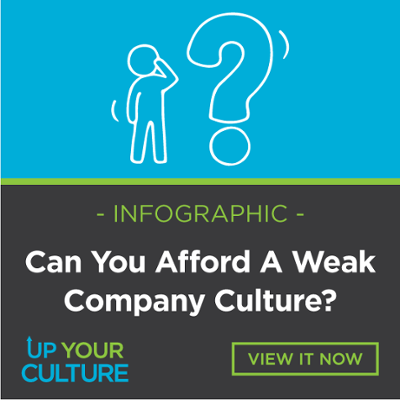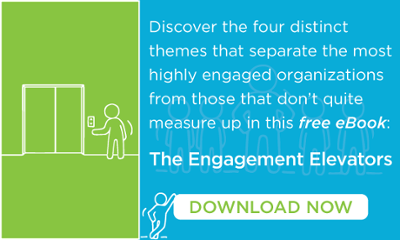
Traditionally, employers have made hiring decisions based primarily on experience; looking at a candidate’s previous roles, a list of “required skills,” and seeking out those who they feel match a wish list of desired traits.
Harvard Business Review sampled 115 Monster.com job ads and found that 82% either required or stated a strong preference for experience.
The evidence from the same research study doesn’t support the idea that applicants with more experience will be better or longer-tenured employees than those with less. In short, experience doesn’t predict a new hire’s success.
What Does Culture Fit Mean?
 Part of an effective hiring strategy is to look for individuals who have the right combination of attributes—a good education, relevant job experience, the right technical skill sets and knowledge—and the other criteria that’s equally important: culture fit.
Part of an effective hiring strategy is to look for individuals who have the right combination of attributes—a good education, relevant job experience, the right technical skill sets and knowledge—and the other criteria that’s equally important: culture fit.
Culture fit is what happens when an employee’s innate beliefs and behaviors are in natural alignment with their company’s beliefs and behaviors. When a person can bring their “whole selves” to work, be who they are, and feel like they belong—that’s a good culture fit. And as a result, that person will be more energized, engaged, productive, and happy.
The burden of getting the culture fit right falls on both the hiring company and the person interviewing for the job. The candidate needs to know who they are and how they work best so they can recognize an environment that is a great match for them.
The company also needs to know exactly who they are and how they work best, which means they must have clearly defined core values. How can you know that someone is a good fit for your company if you can’t clearly articulate who you are as a company and what you believe in?
The Impact of a Bad Culture Fit
Low employee morale and lost productivity are two of the largest hidden costs associated with a bad culture fit. If you bring in one bad hire who is not a match for your culture, you’re putting your entire team at risk.
You’ve heard the phrase, “one bad apple spoils the whole bunch.” When one person is pessimistic, a negative working environment is created. This doesn’t just affect your employee’s attitude and mindset—it can affect their productivity, too.
Disengagement and negativity are contagious at all levels, but it becomes a bigger problem when the bad culture fit exists at a senior level. When a manager has a negative attitude, the entire team is affected. It’s not easy for a team to be happy, productive, and collaborative when their manager is undermining their ability to work together and stay focused on tasks.
3 Tips for Making Culture Fit Part of Your Hiring Strategy
We get it. Experience is easy to assess with yes or no questions. “Have you worked in sales for X years?” “Have you been a project manager for X years?”
Determining whether the candidate is a good culture fit is more challenging. Here are a few tips to help get you started:
1. Know Your Core Values
Before you begin evaluating candidates for cultural fit, you need to clearly define your company’s culture and core values. Until you determine who you are as a company and define your core values, you won’t be able to know whether someone is a good fit or not.
Think about what types of people typically succeed at your organization. Who are your top performers? Why do they do so well in your organization?
2. Involve Team Members in the Interview Process
Don’t limit the interview process to just one interviewer. There are many different factors that influence a company culture, and just because the candidate has a strong connection with the interviewer does not mean they’ll have a connection with the rest of the team.
It’s important that the candidate meets with multiple members of your team to determine if their personality is a match for the organization. Remember to give the candidate a moment to “warm up” in a new situation. Not everyone is ready to face multiple people at once!
3. Ask About Their Goals and Passions
What does the candidate really care about?
Do their professional goals mesh with the goals of the company? Do their core values align with the organization? You can usually determine whether the candidate’s professional passion fits with your company’s mission just through simple conversation.
Make Culture Fit a Part of Your Hiring Strategy
Many times, companies end up with qualified employees who just don’t fit with the company’s values and mission. This leads to disengagement, turnover, and ultimately effects your clients.
Adding elements of culture into your interview process helps you get a sense of what your candidate is all about and if they’ll fit and enhance your company culture.
Highly engaged employees grow revenue 2.5 times as much as those who don’t! Every hire you make will either add to your culture or detract from it.








LEAVE A COMMENT